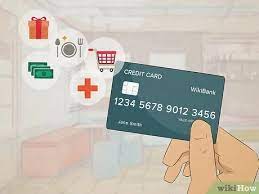Credit cards are a convenient way to make purchases, but they can also lead to financial trouble if not managed properly. If you’re not careful, you can quickly accumulate high-interest debt that can be difficult to pay off. In this article, we’ll discuss some tips on how to manage your credit card effectively.
1) Create a Budget – The first step in managing your credit card is to create a budget. Your budget should include all of your monthly expenses, including rent or mortgage payments, utilities, food, and other bills. Make sure you also include your credit card payments in your budget.
Once you’ve created a budget, stick to it. Avoid making purchases that are outside of your budget. It’s important to remember that credit cards are not free money. You will have to pay back the money you borrow, so it’s essential to spend within your means.
2) Use Your Credit Card Responsibly – Using your credit card responsibly means paying your bills on time and in full each month. Late payments and missed payments can hurt your credit score, making it harder to get approved for loans and credit cards in the future.
If you can’t pay your credit card bill in full, try to pay more than the minimum payment. The minimum payment will only cover the interest and a small portion of the principal balance, which means it will take longer to pay off your debt.
3) Monitor Your Credit Card Activity – It’s essential to monitor your credit card activity regularly. Review your statements each month to make sure there are no unauthorized charges or errors. If you do find an error or unauthorized charge, contact your credit card company immediately.
You can also monitor your credit card activity online. Most credit card companies have online portals where you can track your spending, make payments, and view your statements.
4) Keep Your Credit Card Information Secure – Keeping your credit card information secure is critical. Don’t give your credit card information to anyone you don’t trust, and never provide it over email or text message.
If you lose your credit card or suspect that it’s been stolen, contact your credit card company immediately. They can freeze your account and issue you a new card.
5) Take Advantage of Credit Card Rewards – Many credit cards offer rewards programs, such as cashback or travel rewards. Take advantage of these rewards by using your credit card for purchases you would make anyway, such as gas, groceries, or online shopping.
Be sure to read the terms and conditions of your rewards program carefully. Some programs may have limits on how much you can earn, or they may expire after a certain amount of time.
6) Don’t Apply for Too Many Credit Cards – While credit cards can be useful, having too many can be a problem. Applying for multiple credit cards can hurt your credit score, and it can be challenging to keep track of multiple payments and due dates.
It’s better to have a few credit cards that you use responsibly than to have multiple cards that you can’t manage effectively.
Conclusion – Managing your credit card effectively requires discipline and responsibility. By creating a budget, using your credit card responsibly, monitoring your activity, keeping your information secure, taking advantage of rewards programs, and not applying for too many cards, you can keep your finances in order and avoid the pitfalls of high-interest debt.


